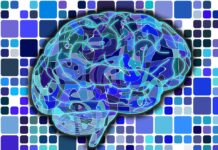Physicians Underestimate Harms and Overestimate Benefits of Treatment
A new study analyzed over 13,000 doctors and found that physicians had a poor understanding of risks and benefits in every field, including psychopharmaceutical prescription, to CT scans, and cancer screening.
Inappropriate Use of Antipsychotics on Adults with Intellectual and Developmental Disabilities
One-third of adults with an intellectual or developmental disability are dispensed antipsychotics, despite having no existing psychiatric diagnosis.
Study Suggests Mania More Common in Psychosis When Antidepressants Used
A prospective cohort study of those labeled high risk for psychosis finds a higher prevalence of antidepressant use among those who develop manic symptoms.
Moral Enhancement Technologies are Reportedly Ineffective, Impractical, and Unwise
A new paper published in Bioethics assesses proposals to “enhance morality” through neuropharmacological and neurotechnological interventions.
Researchers Call for Reappraisal of Adverse Mental Effects of Antipsychotics, NIDS
In a study published yesterday, researchers from the Nippon Medical School in Tokyo bring attention to a condition known as neuroleptic-induced deficit syndrome (NIDS)...
About 1 in 100 Children Treated with Ritalin Experience a Serious Adverse Event
A recent Cochrane review has found that serious adverse events occur for about 1% of children and adolescents treated with Ritalin.
“Psych Drug Link to Violent Episodes Analysed”
The Irish Examiner reports on research by Yolande Lucire connecting antidepressant-induced akathisia to violent episodes. The research concludes that the “medicalisation of common human...
Lithium
In this piece for Healing Journey, Anne O'Beirne briefly summarizes the history of the medical usage of lithium and describes the impact that the drug has...
Researchers Ask, ‘Why Do Antidepressants Stop Working?’
An international group of researchers, including several with financial ties to manufacturers of antidepressants, explore possible explanations for why long-term users of antidepressants become chronically depressed.
Depressed Patients on Antidepressants Do Worse in the Long Run
From Medical Xpress: A new analysis of the long-term effects of antidepressants found that symptoms of depression were more sharply elevated nine years following treatment...
“Psychiatric Drugs and Veteran Suicides”
US Congressman David Jolly has introduced a bill calling for studies on the link between veteran suicides and psychiatric drugs. The International Society for...
Antidepressants Associated with Increased Risk for Manic Symptoms
An analysis of medical records in the UK reveals that the use of certain antidepressants for depression is linked to a heightened risk for mania and bipolar disorder. The research, published this week in BMJ Open, found the strongest effect for serotonin reuptake inhibitors (SSRIs) and the antidepressant venlafaxine.
VA Hospitals Perform Worst on Inpatient Psychiatric Care
The results of the cross-sectional study show that U.S. Department of Veterans Affairs (VA) owned hospitals perform worst on most measures.
“Doctors Tell Sinead O’Connor: ‘You’re Not Bipolar’”
Sinead says she was misdiagnosed after giving birth eight years ago and has suffered greatly from the psychiatric drugs she was prescribed. “They are...
Study Privileges the Voices of Persons Hospitalized Against Their Will
How people are treated after being hospitalized can either help them to overcome the traumatic effects of coercion or make them worse.
Study Explores Cognitive Effects of Antipsychotics
Reduced usage of antipsychotics in first-episode psychosis was associated with improved executive functioning.
Researchers Discover How Antipsychotics Lead To Parkinsonism
A new study published this month in the journal Neuron identifies the mechanism by which antipsychotic drugs can induce parkinsonism, a condition involving movement...
German Psychologists Declare “the Drugs Don’t Work”
Jürgen Margraf and Silvia Schneider, both well-known psychologists at the University of Bochum in Germany, claim that psychotropic drugs are no solution to mental...
Study Examines US Mortality Rates for First-Episode Psychosis
At 12 months, rates of mortality for those diagnosed with first-episode psychosis are 24 times higher than the general population.
Abilify: The Drug That Could Gamble Your Life Away
On this episode of America's Lawyer, Mike Papantonio discusses the numerous lawsuits pending involving the anti-psychotic drug Abilify, which has caused plaintiffs to develop serious...
My Response to the FDA’s ECT Rule Change
I lived through forced ECT from 2005-2006 at the Institute of Living in Hartford, Connecticut. My experience with ECT was the impetus for me to become involved in the antipsychiatry and Mad Pride movements, although I am not entirely opposed to voluntary mental health treatment. The following is the comment I submitted to the FDA on its proposal to down-classify the ECT shock device.
Benzodiazepine Use Linked to Dementia and Memory Loss
A recent review of the research found that benzodiazepine use may have long-term effects on memory and increase the risk for dementia. The study,...
SSRIs and Benzodiazepines Associated with Problems in Infants
Infants exposed to SSRIs and benzodiazepines during pregnancy show impaired neurologic functioning in the first month after birth, according to a new study published in the American Journal of Psychiatry. While infants exposed SSRIs alone showed neurobehavioral effects throughout the first month, those exposed to an SSRI and a benzodiazepine had more significant problems.
Intergenerational Impact of Adverse Childhood Experiences
The daughters of children evacuated from Finland during World War II show an increased number of psychiatric hospitalizations.
Many People Taking Antidepressants Discover They Cannot Quit
From The New York Times: Global prescription rates and long-term use of antidepressants are rising rapidly. One unanticipated consequence of this trend is that more...

























